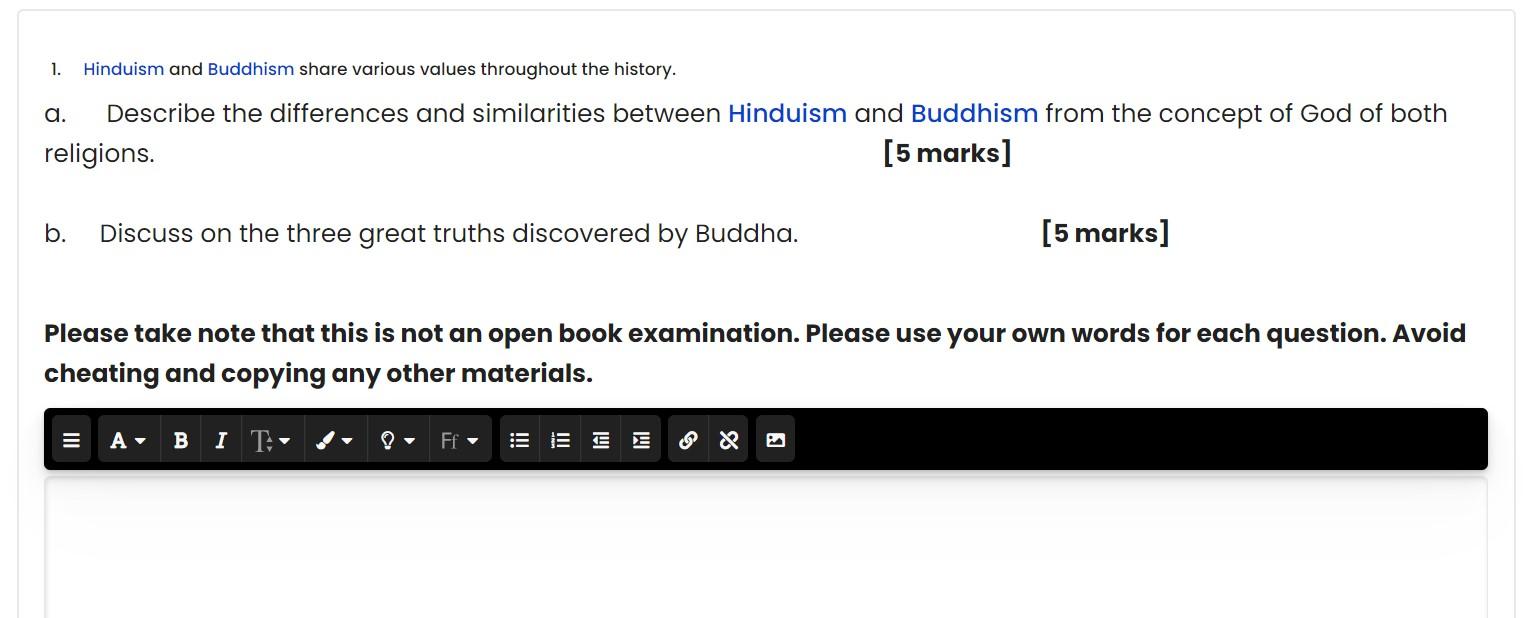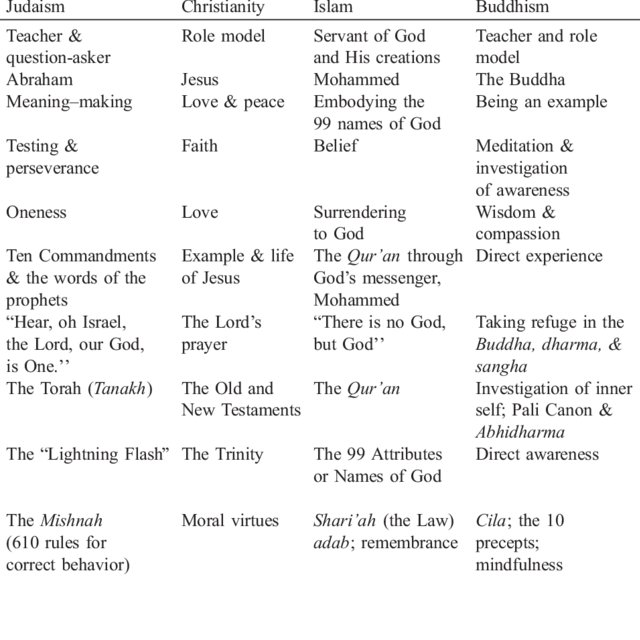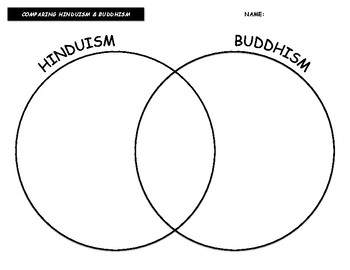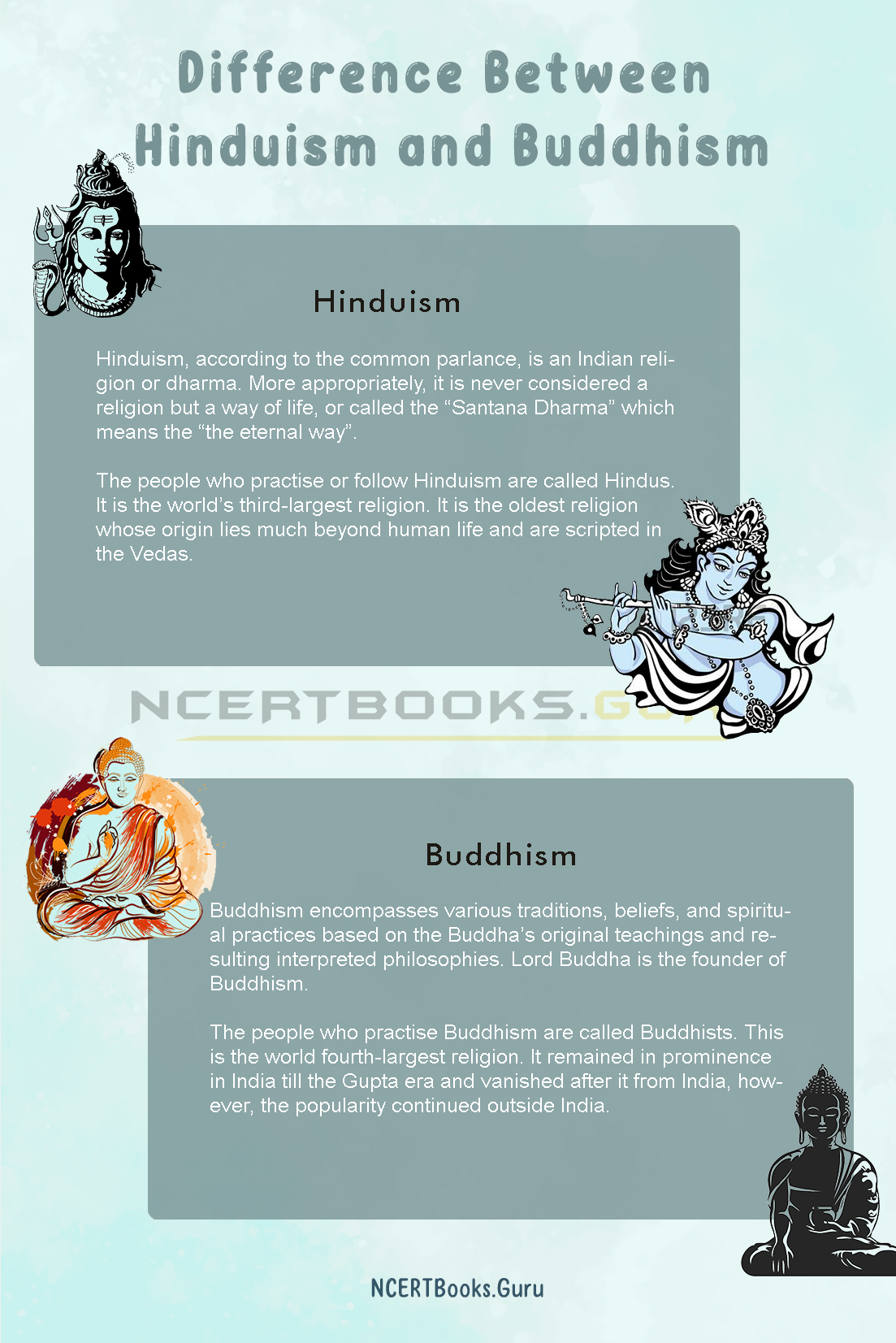Buddhism and Hinduism are two of the oldest and most influential religions in the world, with a combined history spanning over 3000 years. While both religions have a long and complex history, they also have many differences that set them apart.
One of the main differences between Buddhism and Hinduism is their approach to the concept of God. Hinduism is a polytheistic religion, which means that it worships many gods and goddesses. These deities are believed to be responsible for the various aspects of life, such as wealth, health, and fertility. In contrast, Buddhism is a non-theistic religion, which means that it does not believe in the existence of a personal God or creator. Instead, Buddhists believe in the concept of Nirvana, or the state of enlightenment and liberation from suffering.
Another significant difference between Buddhism and Hinduism is their views on the nature of reality. Hinduism teaches that the ultimate reality is Brahman, the absolute and ultimate reality that is the source of all things. It is believed to be eternal, unchanging, and all-pervading. In contrast, Buddhism teaches that the ultimate reality is emptiness, or the absence of inherent existence. Buddhists believe that all things are impermanent and constantly changing, and that attachment to these things leads to suffering.
In terms of their practices, Buddhism and Hinduism also have some significant differences. Hinduism is a diverse religion with many different practices, including the worship of deities, yoga, and the performance of rituals. Buddhism, on the other hand, emphasizes the practice of mindfulness and the cultivation of ethical behavior, such as compassion and non-violence. It also emphasizes the importance of personal cultivation and the development of insight into the nature of reality.
Another difference between Buddhism and Hinduism is their respective foundations. Hinduism is based on the Vedas, a collection of ancient texts that contain the knowledge and teachings of the religion. These texts are considered sacred and are passed down from generation to generation. Buddhism, on the other hand, is based on the teachings of the Buddha, who is considered to be the founder of the religion. The Buddha's teachings, known as the Dharma, are recorded in a collection of texts called the Sutras.
In conclusion, while Buddhism and Hinduism share some similarities, they also have many significant differences. While Hinduism is a polytheistic religion that worships multiple deities and believes in the ultimate reality of Brahman, Buddhism is a non-theistic religion that emphasizes the practice of mindfulness and the cultivation of ethical behavior, and believes in the ultimate reality of emptiness. Additionally, Hinduism is based on the Vedas, while Buddhism is based on the teachings of the Buddha. Despite these differences, both religions have had a significant influence on the spiritual and cultural development of humanity.








